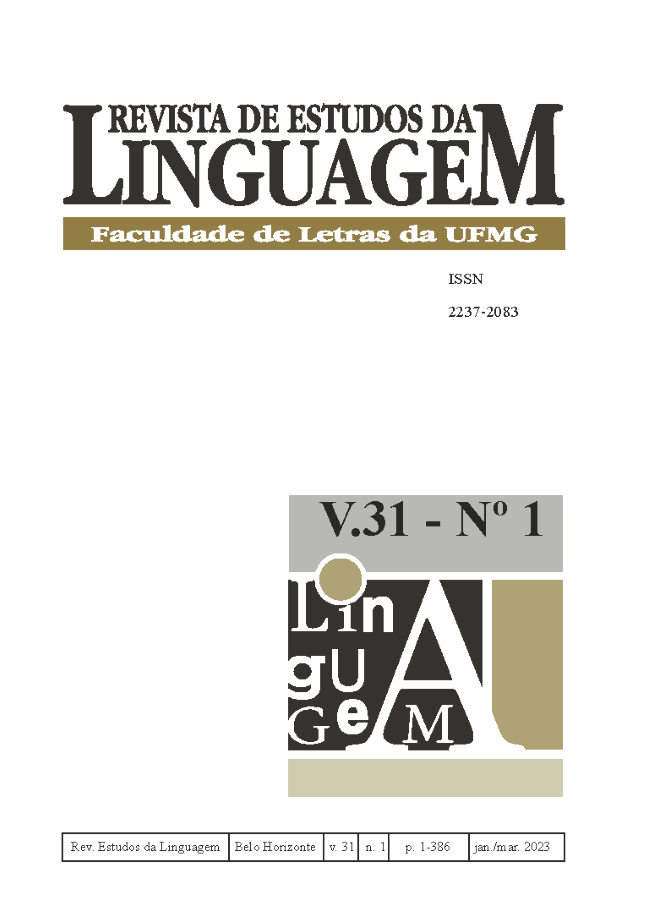La composición léxica del vocabulario infantil en niños de cuatro años de distintos grupos sociales y su relación con el entorno lingüístico
DOI:
https://doi.org/10.17851/2237-2083.31.1.10-50Palavras-chave:
vocabulario, composición léxica, producción infantil, entorno lingüísticoResumo
El objetivo de este trabajo es analizar la composición léxica del vocabulario productivo infantil y su relación con el input lingüístico al que los niños de cuatro años de distintos grupos sociales están expuestos. A partir de un corpus de habla espontánea, se seleccionaron las transcripciones de 19 niños de dos grupos sociales distintos (n= 38), correspondientes a 456 horas de grabación, y se analizó la cantidad total y los tipos distintos de sustantivos, adjetivos y verbos, tanto en la producción infantil como en el input lingüístico. El análisis de la varianza mostró que en ambos casos hubo una mayor cantidad de tipos distintos de sustantivos respecto a las demás palabras, pero una mayor cantidad total de verbos. Las regresiones beta con el vocabulario infantil como variable dependiente indicaron que la pertenencia al grupo socioeconómico fue un predictor de tipos distintos de todas las clases de palabras y de cantidad solo de adjetivos; la presencia de cada clase de palabra en el input fue predictor de la cantidad de las tres clases de palabras, y de mayor cantidad de tipos distintos de adjetivos y verbos. Estos resultados muestran la complejidad de las experiencias tempranas infantiles y la relevancia de atender a los distintos contextos en los que los niños adquieren el lenguaje.





